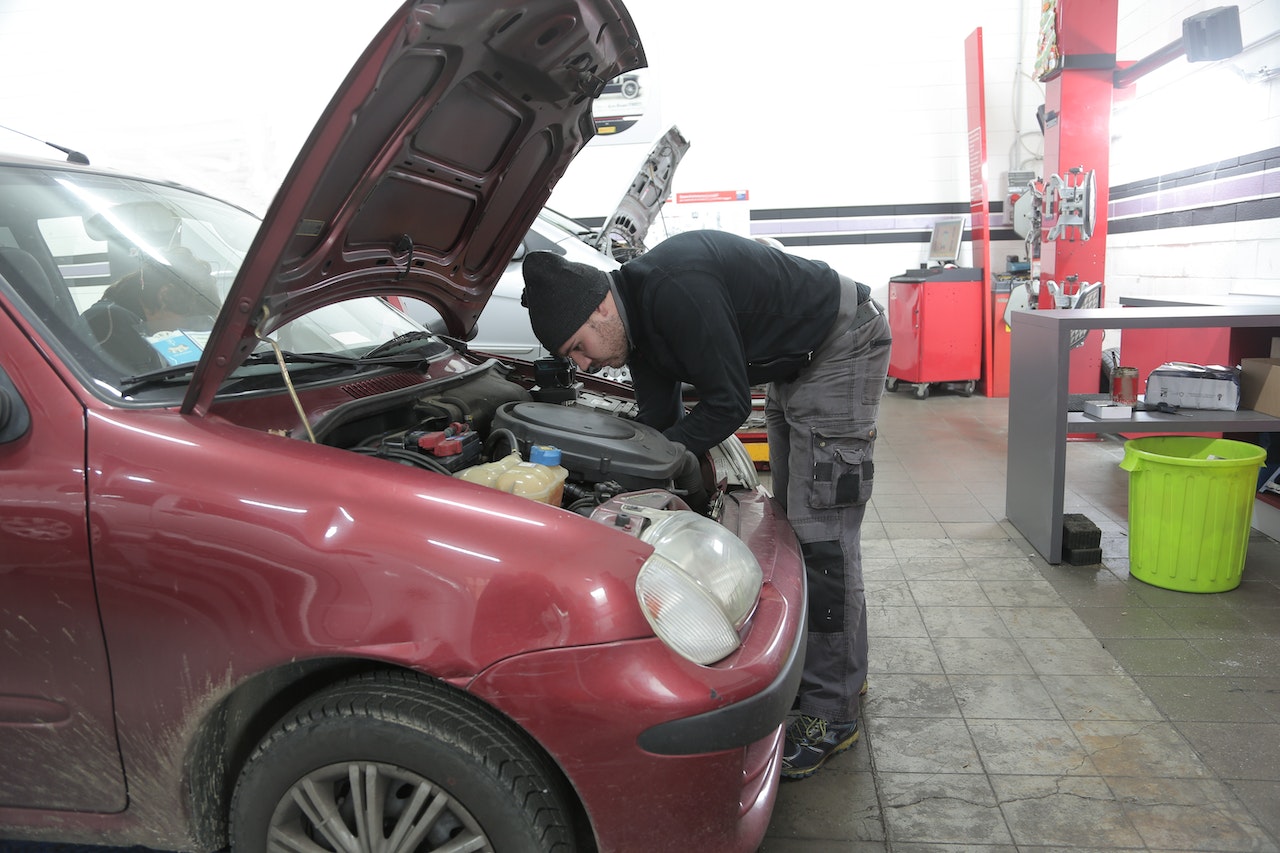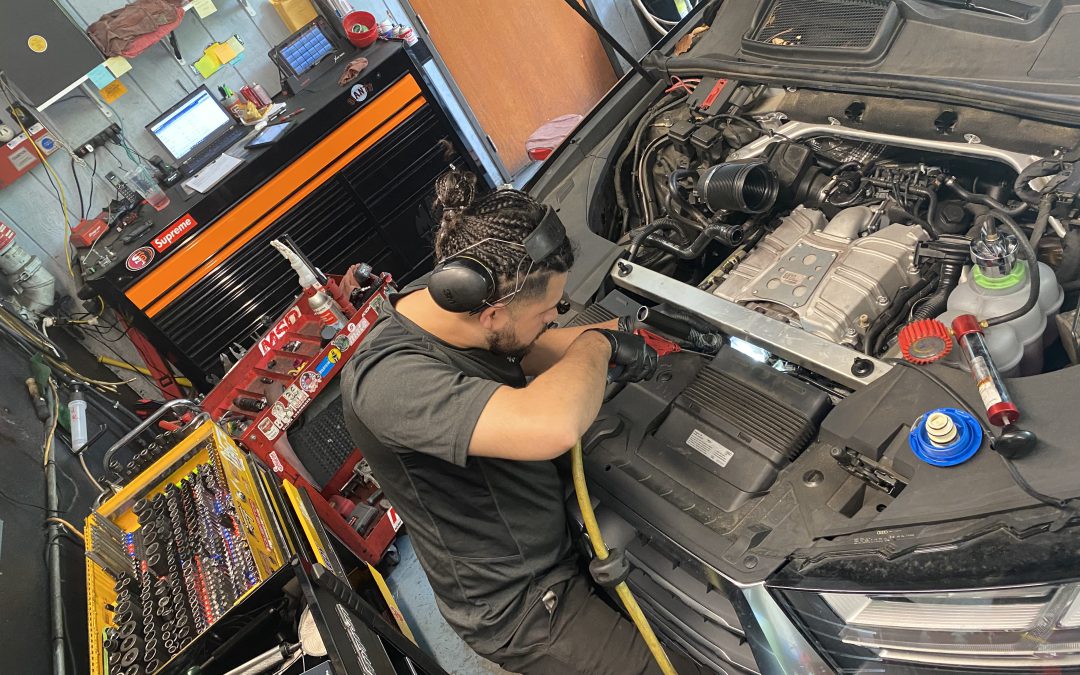Car electrical issues are among the most common problems diagnosed by automotive professionals. Modern cars have become highly dependent on their electrical systems, and as vehicles continue to advance in complexity, the number of components that can malfunction has increased. These problems can range from minor inconveniences to major faults that immobilize a vehicle. Below are seven common car electrical issues diagnosed by professionals, elaborated to provide a comprehensive understanding of each problem.
1. Dead or Failing Battery
One of the most frequent electrical issues in cars is a dead or failing battery. The battery is the heart of the car’s electrical system, providing the necessary power to start the engine and supply electrical energy to other components like lights, infotainment systems, and climate control.
Symptoms:
- The engine cranks slowly or doesn’t crank at all.
- Dim or flickering headlights.
- The dashboard warning light for the battery comes on.
- Electrical accessories (e.g., radio, power windows) stop functioning.
Causes: Batteries can fail for several reasons, including age, extreme weather conditions, or leaving the lights on for extended periods when the car is off. Over time, a battery’s ability to hold a charge diminishes. Corroded or loose battery terminals can also prevent proper power flow, leading to difficulties in starting the vehicle.
Solution: In most cases, replacing the battery resolves the issue. Ensuring that the terminals are clean and properly connected can also improve battery performance. Regular battery checks are recommended, especially before the winter months when colder temperatures can decrease a battery’s efficiency.
2. Faulty Alternator
The alternator is responsible for maintaining the battery’s charge and powering electrical systems when the engine is running. If the alternator fails, the battery won’t be able to recharge, which leads to electrical problems and eventually a stalled vehicle.
Symptoms:
- Warning light (often shaped like a battery or “ALT” light) on the dashboard.
- Dim or overly bright headlights.
- Dead battery even after a jump-start.
- Whining or grinding noises from the alternator.
- Burning smell under the hood.
Causes: Alternator failure can occur due to wear and tear over time. Electrical shorts, broken belts, or issues with the voltage regulator (a component that ensures the alternator doesn’t overcharge or undercharge the battery) can also cause alternator problems.
Solution: Replacing the alternator is the typical solution for this issue. A mechanic will also inspect the serpentine belt to ensure that it is in good condition and properly tensioned. In some cases, the voltage regulator can be replaced separately if it’s the root cause.
3. Blown Fuses
Fuses are safety devices that protect the car’s electrical circuits from excessive current. If a fuse blows, it cuts off the circuit to prevent damage to the system. While fuses are designed to blow under stress, frequent or repeated blown fuses indicate a deeper problem.
Symptoms:
- Loss of function in certain electrical components, such as power windows, lights, or the radio.
- Dashboard lights may not come on when the car is started.
- Certain warning lights may flash or not appear at all.
Causes: A blown fuse is usually caused by an electrical short or overloading the circuit. For example, installing aftermarket electrical components without proper wiring can cause a fuse to blow. Water intrusion or a damaged wiring harness can also lead to fuse failure.
Solution: Replacing the blown fuse is a quick fix, but it’s important to identify the underlying cause. A professional will check the circuit for shorts or improper wiring to prevent the problem from recurring.
4. Malfunctioning Starter Motor
The starter motor is what turns the engine over and gets the car running. If the starter fails, the engine won’t crank, and the vehicle won’t start.
Symptoms:
- Clicking or grinding noise when trying to start the car.
- The engine won’t turn over, even though the battery is fully charged.
- Smoke may come from the starter due to overheating.
Causes: Wear and tear is the most common cause of starter motor failure. Over time, the gears or electrical components inside the starter can wear out, preventing it from functioning properly. Bad wiring connections or a faulty starter solenoid can also contribute to the issue.
Solution: In most cases, the starter motor will need to be replaced. If the issue lies with the wiring or solenoid, a technician can repair or replace those specific components.

5. Bad Wiring or Electrical Shorts
Electrical wiring in a car connects all the various components to the battery and alternator, allowing them to function properly. A problem with the wiring can cause a range of electrical issues, from minor inconveniences to major safety concerns.
Symptoms:
- Intermittent failure of electrical components (e.g., windows or lights working sporadically).
- Burning smell or visible melting of wires.
- Fuses blowing frequently.
- Electrical sparks or flickering lights.
Causes: Wiring problems can stem from a number of factors, including corrosion, damaged insulation, or wear and tear over time. Rodents can also chew through wires, creating electrical shorts. Water intrusion from a leaking windshield or sunroof can cause electrical components to short out.
Solution: Diagnosing wiring issues can be complex, as it involves tracing the entire electrical system to find the damaged or shorted wires. A professional will use specialized tools to detect and repair any wiring faults. In some cases, the wiring harness may need to be replaced entirely.
6. Faulty Sensors
Modern vehicles are equipped with a wide array of sensors that monitor everything from engine performance to tire pressure. When these sensors fail or give incorrect readings, it can lead to a host of problems, including poor engine performance and faulty dashboard warnings.
Symptoms:
- The check engine light or other warning lights illuminate.
- Poor fuel efficiency.
- Irregular engine performance (e.g., stalling, misfiring).
- Speedometer, odometer, or other dashboard gauges malfunction.
Causes: Sensor issues can occur due to wear and tear, contamination (e.g., oil or dirt), or poor connections. A faulty oxygen sensor, for example, can cause the engine to run rich or lean, affecting fuel economy and performance. A bad mass airflow sensor can lead to rough idling or stalling.
Solution: Sensors can often be cleaned or recalibrated if they are dirty or providing inaccurate readings. In some cases, the sensors will need to be replaced. A diagnostic scan tool is usually employed by professionals to pinpoint the specific sensor causing the issue.
7. Failing Electrical Accessories
Many modern vehicles come with a host of electrical accessories, such as power windows, sunroofs, heated seats, and infotainment systems. When these accessories malfunction, they can be an annoyance or, in some cases, a safety hazard.
Symptoms:
- Power windows or sunroof not opening or closing.
- Heated seats not working.
- Infotainment system not turning on or malfunctioning.
- Electric mirrors or locks not functioning.
Causes: Electrical accessories often fail due to problems with wiring, blown fuses, or worn-out switches. Water intrusion can damage electrical components, while regular wear and tear can lead to the failure of mechanical components like window regulators.
Solution: Depending on the problem, a mechanic may need to replace a switch, repair wiring, or replace the faulty accessory. In some cases, a simple fuse replacement may restore function.
Conclusion
Electrical problems in cars are varied, ranging from simple fixes like replacing a fuse to more complex issues like diagnosing wiring shorts or sensor failures. Regular maintenance and prompt attention to warning signs can prevent small issues from escalating into more serious, costly repairs. If you notice any signs of electrical trouble, it’s always best to consult a professional, as modern vehicles require specialized tools and knowledge to diagnose and repair electrical faults correctly. Staying on top of your car’s electrical health not only ensures reliable performance but also enhances safety and efficiency.
Are You Looking for Professional Electrical Diagnostics for Cars?
If you’re in search of expert electrical diagnostics for your vehicle with a proven reputation, look no further than autoTECH Blackhawk. Why choose us for your car’s electrical needs? We stand out among independent automotive service providers by building strong relationships with our customers. This approach allows us to customize our services to match your unique vehicle requirements and performance goals.
Whether you’re experiencing electrical issues, need a thorough system check, or want to ensure your car’s electrical components are functioning optimally, our team is here to assist. We take pride in diagnosing and resolving your vehicle’s electrical concerns, ensuring it performs at its best. Additionally, we offer valuable guidance on electrical maintenance and long-term reliability. Plus, we back our work with an industry-leading 3-year/36,000-mile warranty and only use top-quality parts from trusted manufacturers. Reach out to our friendly team today to schedule a convenient and contactless appointment!


